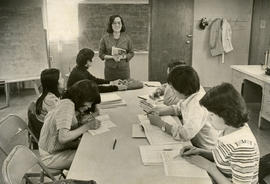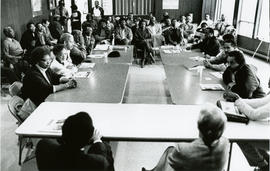The Women’s Intergenerational Living Legacy Organization (WILLO) was founded by Seong Shin in 2013 to share storytelling between generations of women spanning all ages, races, sexual orientations, and cultures. Programs put on by WILLO are often interactive to encourage communication between these identities, as well as being free to all members of the public. The WILLO Founding Members included Sandy Allen, Julie Amman, Todd Anderson, Marian Anderson, Elia Armstrong, Lea Armstrong, Mira Armstrong, Diane Bai, Shaunna Baldyga, Debbie Bronson, Jamie Brooks, Ronnie Bush, Rosmarie Burke, Elizabeth Burris, Carly Bush, Libby Catalinich, Cathy Cha, Nicole Cha, Kevin Cha, Judy Colarusso, Seong Shin, Angela Connelly, Denise Davis, Kathleen Deakins, Teri DeGroote, Maria Devore, Melanie Dressell, Liz Dunbar, T'wina Franklin, Marguerite Gerontis, Jill Goodman, Anna Grover-Barnes, Tina Hagedorn, Chong Hilger, Lisa Isenman, Rick Jones, Anne Kin, Hyang Lee Kim, Janet Kim, Sunni Ko, Babe Lehrer, Denise Kopetzky, Georgia Langrell, Jacquelyn Langrell, Vicki Langrell, Karen Larkin, Chelsea Lindquist, Dawn Lucien, Alexis MacDonald, Robin MacNofsky, Laura McCallum, Barbie Pratt, Laura Michalek, Stephanie Miller, Natalie Minear, Cindy Niemi, Rickie Olson, Julie Peterson, Kathryn Philbrook, Kathleen Deakins, Pamela Transue, Anna Price, Judy Calarusso, Carlyn Roy, Carla Sontorno, Mihwa Schmitscheck, Lea Worth, Ana Maria Sierra, Mary Thomas, Gail Thomason, Amenda Westbrooke, Victoria Woodards, and Sarah Worth. The WILLO Steering Committee formed in in 2014. Steering Committee members included Angela Connelly, Ana Maria Sierra, Babe Lehrer, Barbie Pratt, Dawn Lucien, Diane Bai, Elizabeth Sanders, Lea Armstrong, Melissa Sue Barkley, Robin Macnofsky, Ronnie Bush, Sunni Ko, Tina Hagedorn, and T'wina Nobles. The first WILLO Annual Storytelling Festival was held at the Theatre In the Square on October 12, 2014. The festival featured speakers Lea Armstrong, Eva & Allie Brooks, Rosa Franklin, Melissa Jorgensen, Griselda “Babe” Lehrer, Dawn Lucien, Maxine Mimms, Cindy Niemi, and Seong Shin herself. Six annual Storytelling Festivals have been held by WILLO through 2019. In addition to the WILLO Storytelling Festivals, the organization has also hosted the Health and Happiness Conversations event and the Father-Daughter Brunch.

